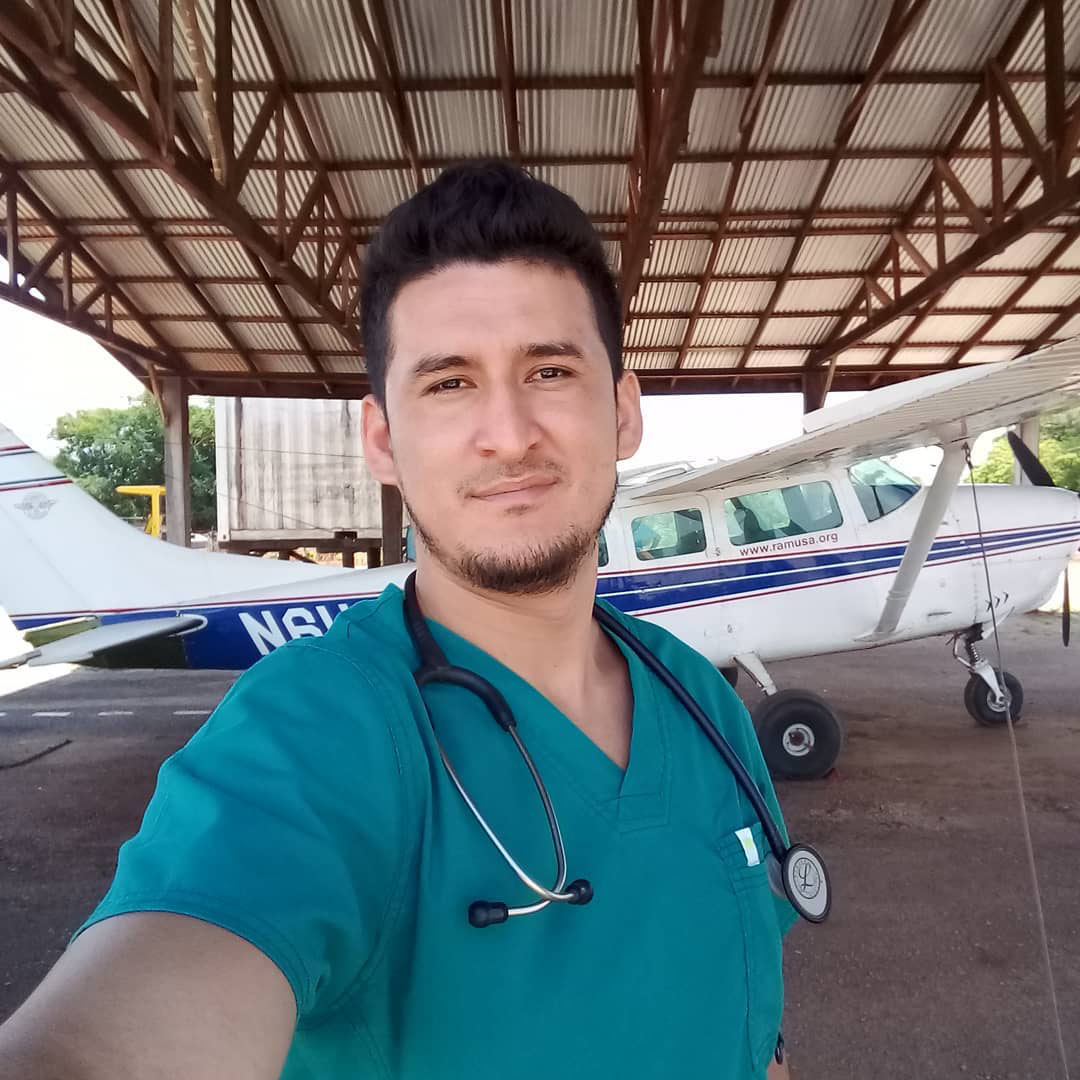A frontline general practitioner who works in Region Eight recently beat COVID-19 and has officially returned to work after weeks of being in isolation.
Dr Narash Torres is attached to the Lethem Regional Hospital and is part of the hospital’s COVID-19 task force which he had volunteered for since the beginning of the COVID-19 outbreak in March, tested positive for the novel coronavirus in early August.
The doctor took to social media on Monday and announced that he was officially out of isolation and was back to work on the frontlines. “For me it was the most challenging experience I’ve had to face yet” he said in the post. Further he noted that the most difficult part of isolation was handling mental health struggles. He went on to thank his family and friends along with doctors, nurses and psychologist who played an important role in his recovery.
In an interview with Stabroek News two weeks ago, Torres had shared his experience with working on the task force prior to becoming infected with the virus. He stated that the task force started with screening at the hospital and sometime later ventured into conducting screening in the various indigenous communities. During this time, he noted that he took all the necessary precautions to protect himself from contracting the virus.
Dr Torres stated that he is not quite sure how he contracted the virus as he took the necessary measures to keep safe. He was swabbed and the results came back positive. He then took to social media where he posted, “Despite all the precautions taken I must sadly say I tested positive for COVID-19… it was only a matter of time… the deadly virus respects no one.”
The general practitioner told this newspaper that he suspects that he caught the virus in the isolation ward where symptomatic patients were being kept. “The facility was not up to standard” he admitted while noting that the area where hospital staff stored their personal protective equipment (PPE) had a door which could not close and led directly into that ward. “So we had like the A/C and stuff blowing right into where we were supposed to be getting dressed”, Dr Torres explained. He surmised that the only other possibility could be that he contracted the virus while working in the field.
The frontline doctor pointed out that doctors and other staff that are entering that facility are supposed to put on their gear in a separate building, which he noted is now under construction. After leaving the isolation ward he said that they are made to remove their own gear and sanitise themselves, which he said is quite risky. “So we should have somebody doing that, sanitising us and then helping us to remove our PPEs, that’s how it should be done.”
Although he acknowledged having some experience working with infectious diseases patients, he iterated that dealing with COVID-19 patients is a totally different experience. “We were not prepared as a region and as a country as a whole.”
Dr Torres had self-isolated in his apartment as facilities in the region were overwhelmed. He stated that he treated himself and was checked on by a doctor or nurse twice daily. Speaking on his experience in battling the virus he said that the first few days after testing positive were hard as he was experiencing a slight fever, persistent coughing, headache, loss of appetite, and nausea. However, he added that he soon started to feel better as he regained his appetite and has suffered no other symptoms but the persistent coughing.
The doctor informed that he was treated with azithromycin which is an antibiotic prophylactic which he explained is used to prevent respiratory infections along with other medication for the fever and coughing, and even vitamins. He related that he also made use of lots of traditional treatments including honey, limes, lemon grass, and ginger, as he wanted to avoid using too much medication.
Now that he is back at the COVID-19 facility, Dr Torres says he now has quite a good understanding of how the virus operates. “We’re hoping that once you get infected you create antibodies and wouldn’t be infected again so it would be ideal for me to continue working and I want to go finish where I left off… I don’t want to quit,” he declared.
The doctor later donated blood from which plasma can be used to treat severely ill COVID-19 patients and assist them in fighting the virus. The plasma in the blood of recovered COVID-19 patients would contain antibodies specific to the novel coronavirus and as such the antibodies help those severely ill patients fight the virus effectively
Dr Torres urged persons to adhere to the safety guidelines and protect themselves from contracting the virus as it has no respect for anyone and can affect anyone regardless of the situation. “We should all take it serious. It is unfair for us healthcare workers for us to be giving our all and putting our lives at risk for persons not to care about it. It’s real!”






